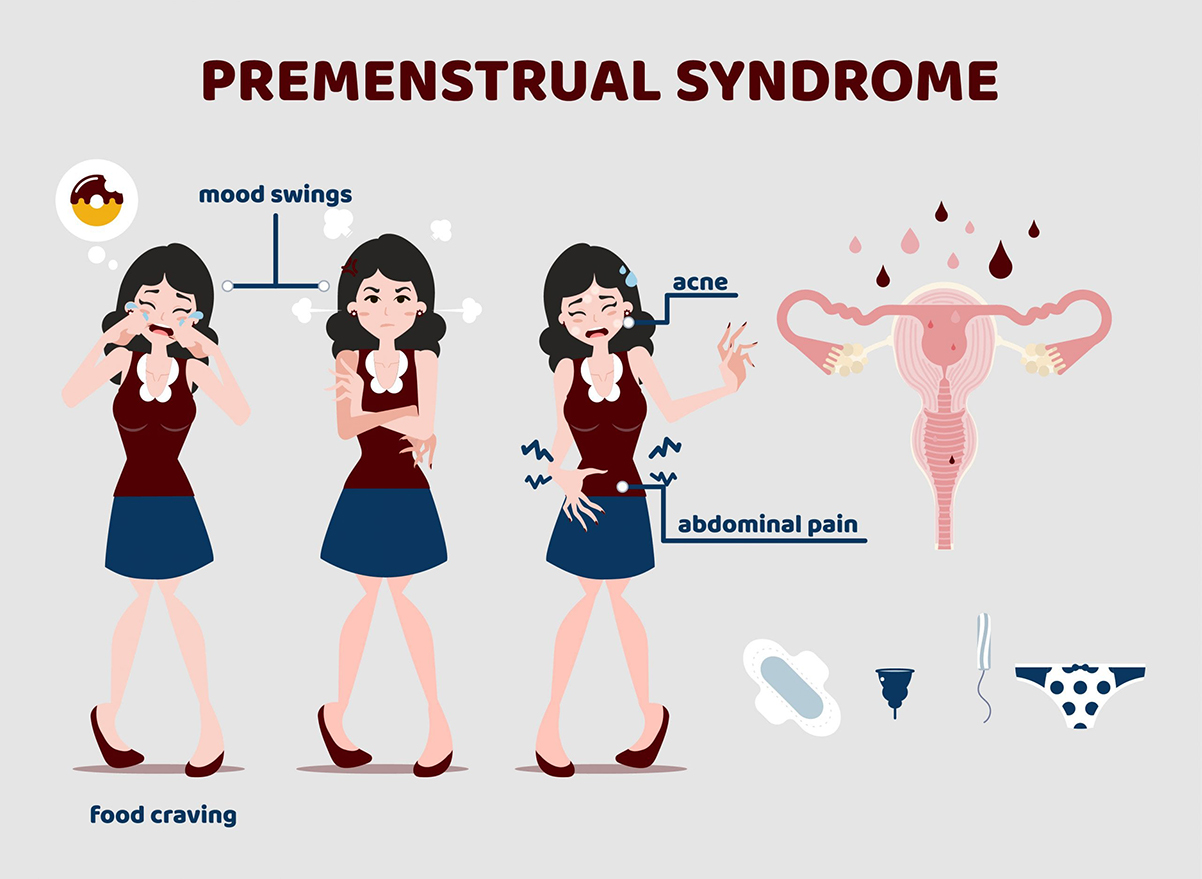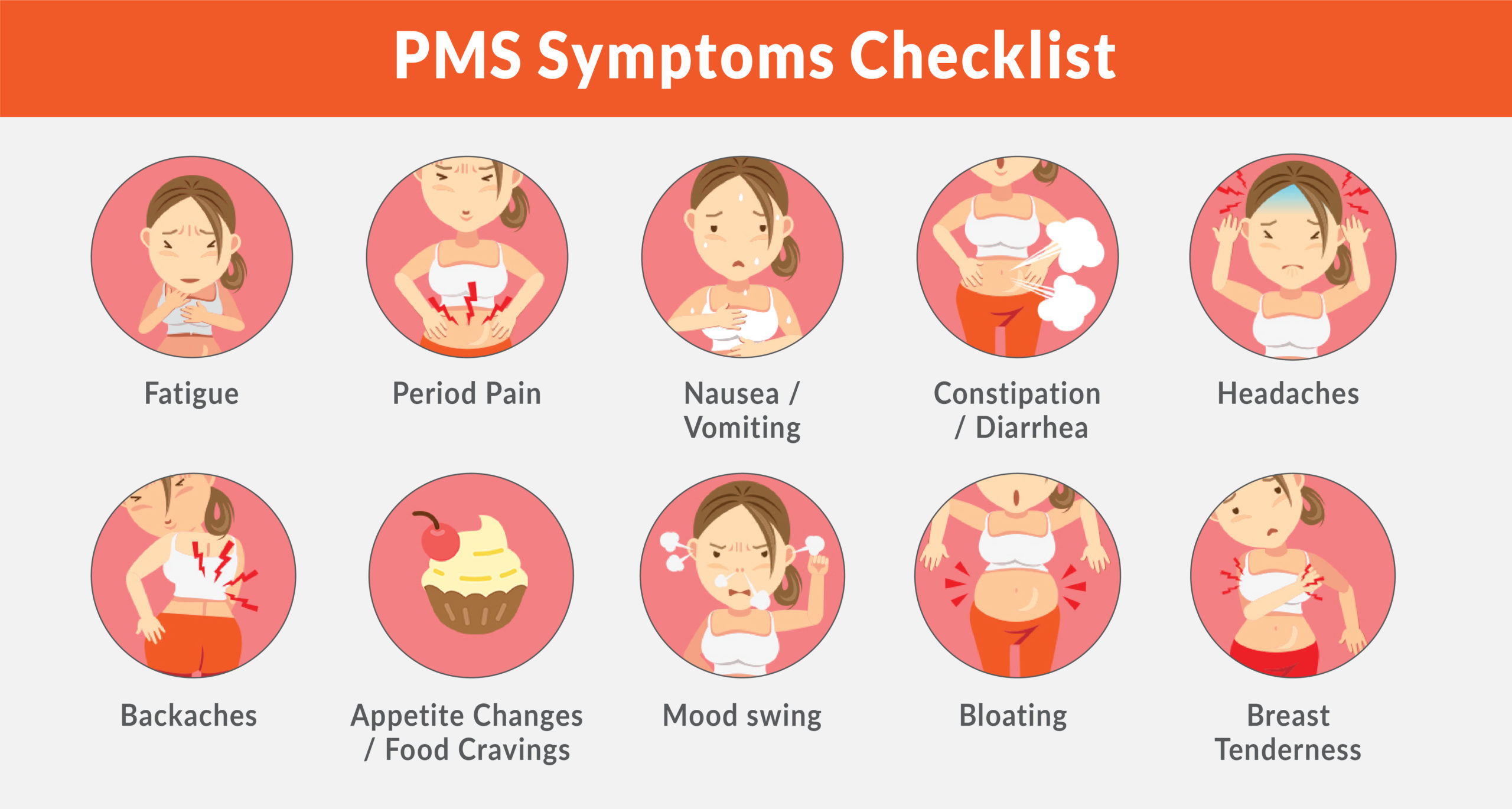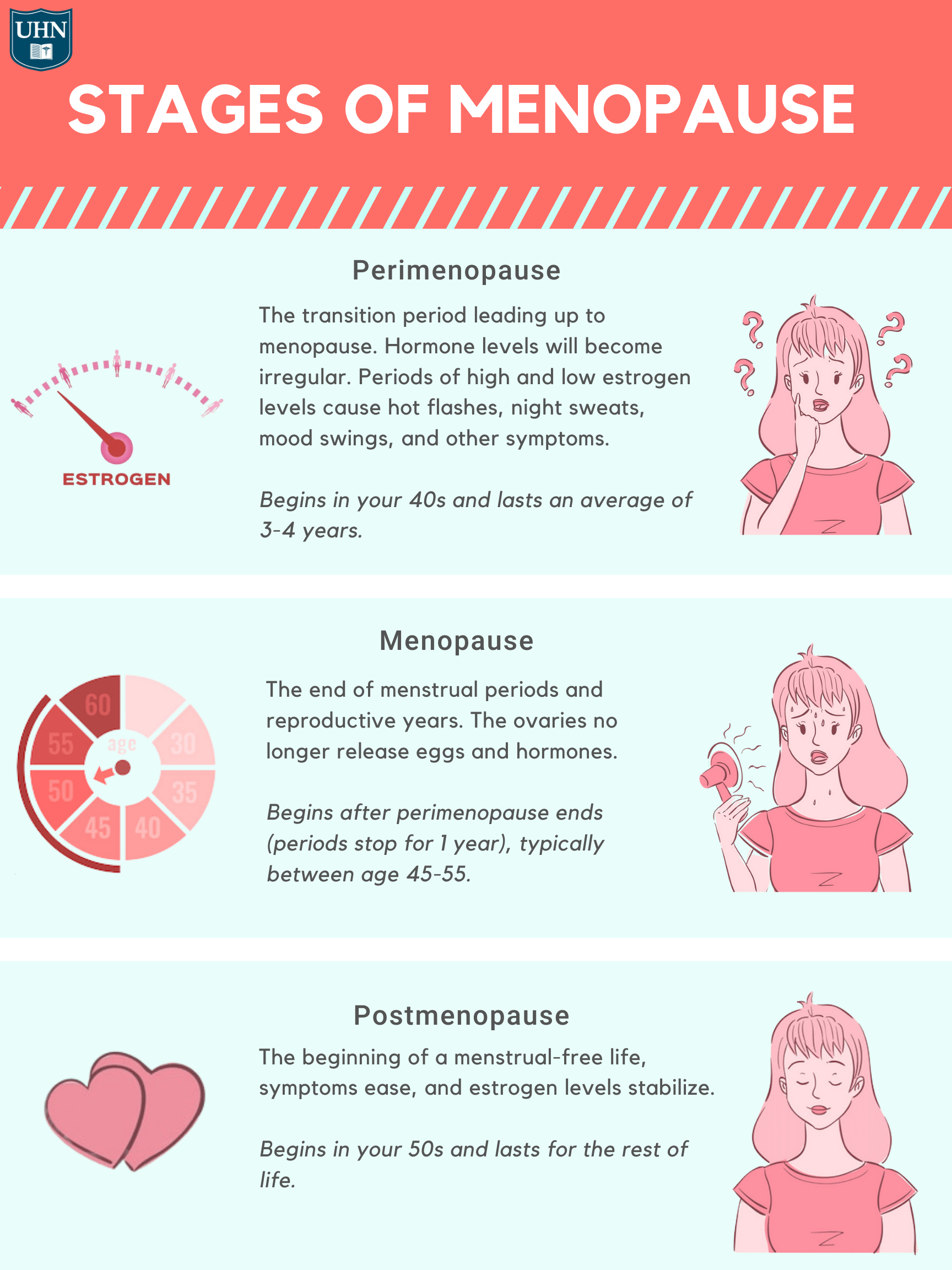
Pin on Premenstrual Syndrome PMS
Postmenstrual syndrome is a term that's used to define the symptoms that women experience just after their period ends. It's very similar to PMS, but instead of getting hit the week before their period, women who experience postmenstrual syndrome find themselves with typical PMS symptoms just after their period's ended - usually for a.

What is Menopause? We Answer Your FAQs Meno Me
Overview. Premenstrual syndrome (PMS) has a wide variety of signs and symptoms, including mood swings, tender breasts, food cravings, fatigue, irritability and depression. It's estimated that as many as 3 of every 4 menstruating women have experienced some form of premenstrual syndrome. Symptoms tend to recur in a predictable pattern.

Find out what are signs and symptoms of postmenstrual syndrome and causes, effective treatments
Post-menstrual syndrome isn't a recognised medical term. However, it might colloquially refer to symptoms that occur after menstruation, such as lingering fatigue or mood changes, says obstetrician and gynaecologist Dr Gayatri Deshpande. These symptoms, if severe or significantly affecting your quality of life, might be indicative of an.

Pin on PMS
Post-menstrual syndrome is a term used to describe symptoms that arise after a person's period ends. These can range from physical symptoms like headaches to emotional ones like anxiety.

PMS Premenstrual Syndrome Symptoms Complete Guide
Post-Menstrual Syndrome: Navigating Hormonal Fluctuations After Menstruation . Post-menstrual syndrome is a topic that resonates with countless individuals, yet it often remains shrouded in misconceptions and overlooked in conversations about women's health.

What is Post Menstrual Syndrome?
Premenstrual syndrome is a combination of symptoms that arrive before your period. Your symptoms may primarily be physical (bloating, fatigue, etc.), emotional (irritability, sadness, etc.) or a combination of both. Either way, PMS symptoms disrupt your life. Lifestyle modifications and over-the-counter medications can often relieve PMS symptoms.

Your Complete Guide To The Symptoms Of Menopause And Perimenopause Midlife Rambler
Postmenopause is the time after you've been without a menstrual period for 12 months. During this stage, menopausal symptoms, such as hot flashes, get milder or go away. People in postmenopause are at increased risk for osteoporosis and heart disease. Medication or healthy lifestyle changes may reduce the risk of these conditions.

A Functional Medicine Approach to PMS
Post-menstrual syndrome is a group of symptoms that tend to happen at the end of menstruation. Menstruation causes hormonal fluctuations to occur in the body, which can result in emotional and physical symptoms. Since this experience can vary widely from person to person, the best management strategy for post- menstrual syndrome is to know your body and become familiar with the way symptoms.

Pin on Womens Health
Note the day that you first notice PMS symptoms, as well as the day they disappear. Also be sure to mark the days your period starts and ends. Certain conditions may mimic PMS, including chronic fatigue syndrome, thyroid disorders and mood disorders, such as depression and anxiety. Your health care provider may order tests, such as a thyroid.

What are Menstrual Disorders & their Types? My Gynae
Post-menstrual syndrome is an unofficial condition that refers to PMS-like symptoms in the early follicular stage of the menstrual cycle. Mental health symptoms in the follicular stage might be influenced by starting low levels of estrogen and progesterone, but more research is needed to confirm this cause and effect.

What is Post Menstrual Syndrome? Causes, Symptoms, and Treatment
Premenstrual dysphoric disorder (PMDD) Premenstrual dysphoric disorder (PMDD) is a health problem that is similar to premenstrual syndrome (PMS) but is more serious. PMDD causes severe irritability, depression, or anxiety in the week or two before your period starts. Symptoms usually go away two to three days after your period starts.

Are You Struggling With Premenstrual Syndrome? Alpro Pharmacy
855-695-4872 Outside of Maryland. +1-410-502-7683 International. Find a Doctor. Premenstrual dysphoric disorder (PMDD) is a much more severe form of premenstrual syndrome (PMS). It may affect women who are able to get pregnant. It's a severe and chronic medical condition that requires attention and treatment.

Pin on Premenstrual Syndrome PMS
Some women feel more emotional or anxious, reporting increased impatience, anger, easy tears, depression and mood swings. Physically, the symptoms of post-menstrual syndrome include pain during sex, nausea, vaginal dryness and physical pain — commonly headaches, joint pain and abdominal pain. In the worst-case scenario, some women's.

What Is Perimenopause Perimenopause Symptoms
Increased tension, feelings of being "keyed up" or "on edge". Emotion regulation issues, or mood swings. Persistent and marked anger or irritability or increased interpersonal conflicts. Subjective sense of difficulty concentrating. A subjective sense of being overwhelmed or out of control.

PMS! Perimenopause Kebidanan, Sakit perut, Lucu
Premenstrual syndrome or PMS is a group of physical and emotional symptoms many women may have in the days before their period starts. Symptoms usually stop once the period starts. It's thought to be related to the changing hormone levels of the menstrual cycle. Lifestyle changes and sometimes medicine are used to treat PMS.

How the Menstrual Cycle Works Menstruation Guide Dr. Jolene Brighten
Postmenopausal symptoms are primarily attributed to the decreased level of circulating estrogen. Hot flashes, vulvovaginal atrophy, and sexual dysfunction result from the complex changes that occur around menopause. At the level of the ovary, there is a depletion of ovarian follicles, especially the granulosa cells.
- Lyrics Still My Guitar Gently Weeps
- Ici Paris Den Haag Openingstijden
- Programma Andre Van Duin En Janny Van Der Heijden
- Nothing But Thieves Upcoming Events
- Mathieu Van Der Poel Tour De France 2023
- Holland S Next Top Model 2018
- Holle Bolle Gijs Efteling Weg
- Wanneer Is Het Tweede Kerstdag
- Tour De France Teams 2023
- Deelnemers Ronde Van Luxemburg 2023
